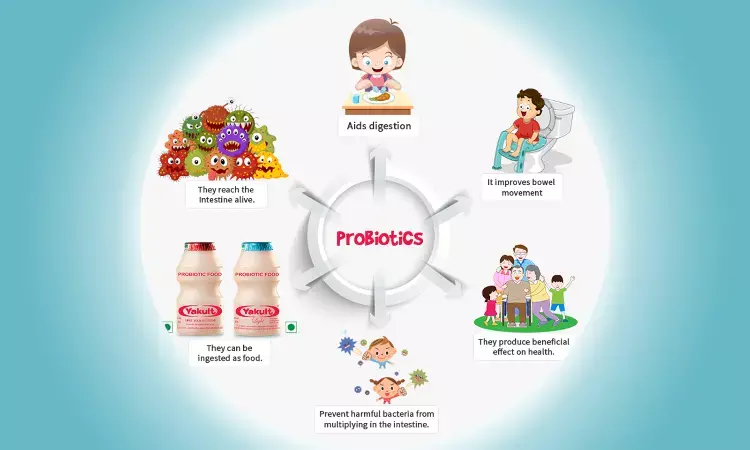- Home
- Medical news & Guidelines
- Anesthesiology
- Cardiology and CTVS
- Critical Care
- Dentistry
- Dermatology
- Diabetes and Endocrinology
- ENT
- Gastroenterology
- Medicine
- Nephrology
- Neurology
- Obstretics-Gynaecology
- Oncology
- Ophthalmology
- Orthopaedics
- Pediatrics-Neonatology
- Psychiatry
- Pulmonology
- Radiology
- Surgery
- Urology
- Laboratory Medicine
- Diet
- Nursing
- Paramedical
- Physiotherapy
- Health news
- Fact Check
- Bone Health Fact Check
- Brain Health Fact Check
- Cancer Related Fact Check
- Child Care Fact Check
- Dental and oral health fact check
- Diabetes and metabolic health fact check
- Diet and Nutrition Fact Check
- Eye and ENT Care Fact Check
- Fitness fact check
- Gut health fact check
- Heart health fact check
- Kidney health fact check
- Medical education fact check
- Men's health fact check
- Respiratory fact check
- Skin and hair care fact check
- Vaccine and Immunization fact check
- Women's health fact check
- AYUSH
- State News
- Andaman and Nicobar Islands
- Andhra Pradesh
- Arunachal Pradesh
- Assam
- Bihar
- Chandigarh
- Chattisgarh
- Dadra and Nagar Haveli
- Daman and Diu
- Delhi
- Goa
- Gujarat
- Haryana
- Himachal Pradesh
- Jammu & Kashmir
- Jharkhand
- Karnataka
- Kerala
- Ladakh
- Lakshadweep
- Madhya Pradesh
- Maharashtra
- Manipur
- Meghalaya
- Mizoram
- Nagaland
- Odisha
- Puducherry
- Punjab
- Rajasthan
- Sikkim
- Tamil Nadu
- Telangana
- Tripura
- Uttar Pradesh
- Uttrakhand
- West Bengal
- Medical Education
- Industry
Probiotics may help obese children lose weight, finds study

Obesity is a global health concern and can lead to a number of life-threatening conditions, such as diabetes and heart disease. Treatment and prevention is a serious public health challenge, especially in children and adolescents.
Researchers have found in a new study that Probiotics may help children and adolescents with obesity lose weight when taken alongside a calorie-controlled diet.The study is being presented at e-ECE 2020.
The study found that obese children who were put on a calorie-restricted diet and given probiotics Bifidobacterium breve BR03 and Bifidobacterium breve B632, lost more weight and had improved insulin sensitivity compared with children on a diet only. These findings suggest that probiotic supplements and a calorie-controlled diet may help manage obesity in the younger population and reduce future health risks, such as heart disease and diabetes.
Bifidobacteria are a group of probiotic bacteria that are part of the natural gut microbiome and help with preventing infection from other bacteria, such as E.coli, and digestion of carbohydrates and dietary fibre. During digestion, they release chemicals called short-chain fatty acids, which play an important role in gut health and controlling hunger. Low numbers of Bifodobacteria may impair digestion, affect food intake and energy expenditure, leading to body weight gain and obesity.
Previous studies suggested that probiotic supplementation with Bifidobacteria could help restore the composition of the gut microbiome, which may aid weight loss and could be a potential approach for obesity management. However, current research uses mixtures of different strains of probiotics and does not examine the effects of administering Bifidobacteria alone.
Dr Flavia Prodam and her team at the University of Piemonte Orientale, aimed to assess the impact of Bifidobacteria probiotic treatment in children and adolescents with obesity on a controlled diet, on weight loss and gut microbiota composition. 100 obese children and adolescents (6-18 years) were put on a calorie-controlled diet and randomly given either probiotics Bifidobacterium breve BR03 and Bifidobacterium breve B632, or a placebo for 8 weeks. Clinical, biochemical and stool sample analyses were carried out to determine the effect of probiotic supplementation on weight gain, gut microbiota and metabolism.
The results suggested that children who had taken probiotics had a reduction in waist circumference, BMI, insulin resistance and E.coli in their gut. These beneficial effects demonstrate the potential of probiotics in helping to treat obesity in children and adolescents, when undergoing dietary restrictions.
"Probiotic supplements are frequently given to people without proper evidence data. These findings start to give evidence of the efficacy and safety of two probiotic strains in treating obesity in a younger population," Dr Prodam comments.
The study suggests that supplementation with probiotics could modify the gut microbiome environment and beneficially affect metabolism, helping obese children or adolescents who are also undergoing a restricted diet to lose weight. However, larger studies over a longer period of time are needed to investigate this.
Dr Prodam explains, "The next step for our research is to identify patients that could benefit from this probiotic treatment, with a view to creating a more personalised weight-loss strategy. We also want to decipher more clearly the role of diet and probiotics on microbiome composition. This could help us to understand how the microbiota is different in young people with obesity."
For further reference log on to:
Abstract 2167
Supplementation with Bifidobacterium breve BR03 and Bifidobacterium breve B632 favoured weight loss and improved insulin metabolism in children and adolescents with obesity in the BIFI-OBESE cross-over, randomized placebo-controlled trial
Dr Kamal Kant Kohli-MBBS, DTCD- a chest specialist with more than 30 years of practice and a flair for writing clinical articles, Dr Kamal Kant Kohli joined Medical Dialogues as a Chief Editor of Medical News. Besides writing articles, as an editor, he proofreads and verifies all the medical content published on Medical Dialogues including those coming from journals, studies,medical conferences,guidelines etc. Email: drkohli@medicaldialogues.in. Contact no. 011-43720751


